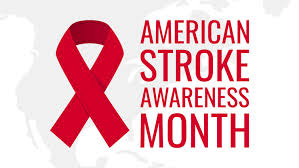 Symptoms of a Stroke in Women vs Men
Symptoms of a Stroke in Women vs MenMay Is Stroke Awareness Month
 Symptoms of a Stroke in Women vs Men
Symptoms of a Stroke in Women vs MenWe Make Insurance Simple & Easy
480-650-0018| Email Us
InsuranceExperts.Team
We Make Insurance Easy & Simple
 Symptoms of a Stroke in Women vs Men
Symptoms of a Stroke in Women vs Men 1 in 5 women in the United States will have a stroke in her lifetime. Stroke kills twice as many women as breast cancer does, making it the fourth leading cause of death for women. May is stroke awareness month. Read more here…
1 in 5 women in the United States will have a stroke in her lifetime. Stroke kills twice as many women as breast cancer does, making it the fourth leading cause of death for women. May is stroke awareness month. Read more here…
 When it comes to children, it would be nice to state what numbers constitute a normal blood pressure reading. Here’s the problem. “Normal” blood pressure numbers change as children grow. It’s further complicated by the fact that high blood pressure tends to be asymptomatic. So what’s a parent to do?
When it comes to children, it would be nice to state what numbers constitute a normal blood pressure reading. Here’s the problem. “Normal” blood pressure numbers change as children grow. It’s further complicated by the fact that high blood pressure tends to be asymptomatic. So what’s a parent to do?
For one thing, be aware that family history is a high risk factor. Since testing is easy, get your child’s blood pressure checked at his or her next doctor visit. Checks can begin as early as infancy for children with conditions like premature birth, heart and kidney problems. These and other medical conditions raise blood pressure for young children up to age 10.
Non-medical causes tend to be lifestyle related. Children on poor diets with little exercise are subject to obesity – a major cause of high blood pressure at any age. To avoid medications, make lifestyle changes with better food and more exercise. This leads to weight loss and may be the only treatment needed. If that doesn’t work, medications ranging from diuretics to beta blockers may be prescribed.
As with any medical condition, the earlier the diagnosis, the easier the treatment.

Three Important Words Regarding Colorectal Cancer
Preventable. Treatable. Beatable.
In spite of the progress made in diagnosis and treatment, cancer – sometimes called the big “C” – continues to strike terror any time we hear it. Colorectal cancer is no exception and for good reason. It’s the second-leading cause of cancer deaths overall. That’s why you need to understand what steps to take so it doesn’t threaten your health.
When it comes to prevention, several screening tests are available to detect colorectal cancer early. Almost all colorectal cancers begin as abnormal growths known as polyps in the colon or rectum. Through screenings, these polyps can be found and removed before they turn into cancer.
Even if the polyps have turned cancerous, early detection finds them soon enough to remove and, if necessary, initiate follow-up treatment.
Here’s the good news.
It’s not uncommon for patients to beat this cancer completely when action takes place as soon as possible. The month of March is dedicated to Colorectal Cancer awareness. Find out how to take the fear out of colorectal cancer by clicking here.
Just remember – colorectal cancer is preventable, treatable, and most important…beatable.
 One thing scientists have learned after years of study is that cancer isn’t just one disease. While a lot more research needs to be done, scientists have made great strides. One area of focus is our immune systems. Another is genetics.
One thing scientists have learned after years of study is that cancer isn’t just one disease. While a lot more research needs to be done, scientists have made great strides. One area of focus is our immune systems. Another is genetics.
Our immune systems work to protect us from foreign bodies that can hurt us. We just need to be able to identify these to fight them. We now know that cancer can sometimes hide which prevents our immune system from finding the cancerous cells. New immunotherapy techniques help our immune systems attack the cancer by 1) Preventing the cancer from hiding and 2) Boosting our immune response against cancer.
Genomics is the study of changes to the genes in your DNA. It’s giving doctors important clues about how your cancer will act and with this knowledge, they can make the best determination for treatment. It works by looking for changes called mutations in certain cancer genes. Once found, doctors can better diagnose the cancer, predict the outcome and decide on the best drug or treatment. They can also monitor how well the treatment is working.
These new developments mean faster identification and diagnoses to help treat cancers more quickly and easily which often leads to a cure.
Are you unhappy with your health insurance premium? Are your employers paid health insurance premiums too expensive? Are you self-employed and looking for affordable health insurance? Are you in a job transition and don’t where to go for health insurance? Are you working in a corporate job just for the health insurance benefits? If you answered “yes” to any of these, I can help you.